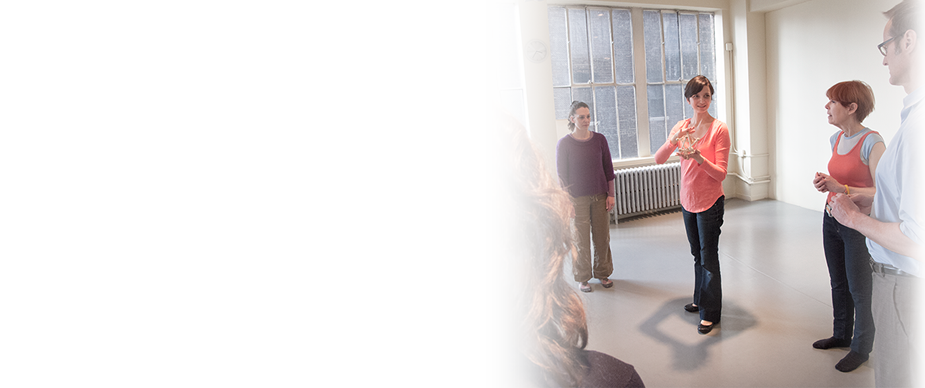The Most Embarrassing thing I've Ever Done and What it Taught Me about Being Present
/It was 1997. I was 17-years-old and knee-deep in applying to college. The story begins in the waiting room of the drama department of of my top-choice school as I anxiously waited for my name to be called for my audition.
I was sitting perfectly still and totally freaking out inside...like I was out of my body. The stakes felt high and I didn't know how I was going to go through with it.
I had to pee, so I made my way to the bathroom. I hadn't grown up in New York City and I had never seen bathrooms with emergency alert buttons. This bathroom had one...a big red button in the stall that said "push in case of emergency".
In my state of panic about the audition, I found myself totally stumped about how this strange, newfangled New York City toilet flushed. It was actually just a normal toilet, but I was so nervous that somehow convinced myself that the only way to flush it must be to press that red button.
So I pushed the big red button.
An ear-piercing alarm rattled the drama department. Covering my ears, I raced out of the bathroom and confessed my mistake to the person at the front desk before anyone called the police.
They called maintenance to turn it off, but the maintenance person didn't show up right away, so I went back to my seat and continued to wait with the alarm blaring in the background as an ongoing reminder of how foolish I'd been.
How could I have thought that a button that said "emergency" would flush a toilet? In hind-sight what I'd done sounded insane. It made no sense...but just moments before I felt so stressed about the audition that it was like I was out of my body, which affected my ability to think. I'd gone temporarily out of my mind.
After a minute of profound embarrassment, I surrendered to the situation and even laughed a bit. The alarm brought me back to the present moment, of being aware of myself and my surroundings, rather than being ruled by anxious thoughts about my audition.
A maintenance worker finally arrived and turned the alarm off. Soon after, I was called into my audition.
It wasn't an Oscar-winning performance, but the wake-up call I got from the alarm calmed my nerves and I felt present in the room while I delivered the two monologues I'd prepared. I actually enjoyed interview, in which I got to proudly show all of the work I'd done on a play I'd directed in high school.
I was accepted into the program and in retrospect, I think my "loss of sanity" was really a way of me pressing my own internal panic button. I needed to snap out of my anxiety if were to have any chance succeeding in my audition. Once I accepted the situation with the alarm, I was more focused on my environment and being present in it, I was more grounded as opposed to all in my head.
As I began studying acting, presence became this sort of magical elusive thing that I could catch hold of on a rare occasion, but I was never sure how I did it or how I'd do it again...and pulling the fire alarm to see if my red button trick still worked wasn't a option!
When I eventually had a class in the Alexander Technique, I learned that there actually were clear, practical steps I could take to reliably get in this "present" zone at will.
And this presence had everything to do with my mind and my body and getting them to work together. What I learned about being present in my body and environment also fixed my poor posture and helped me feel more comfortable and confident, even in stressful situations when fear of failure feels like it's taking over.
Posture isn't just a position we get into for no reason, something genetic, or an inevitable symptom of aging. It's a habit and a physical manifestation of how we respond to thoughts, feelings, and all the stimuli we encounter all day from our computers, to other people, to trains we're trying to catch or bad traffic.
Posture is an attitude and is tied to your ability to be present and make choices that are non-habitual.
But how to you know if you're making the right changes? Our habits are often, at least to some degree, unconscious and "fixing" them become elusive.
That's where a teacher comes in. I found The Alexander Technique so helpful for me, that I later on became certified to teach it and have helped many people do just what I did...become more present and aware and to have specific tools to change long-held physical habits and to be able to stay grounded, present, and strong in difficult situations.
I'd love to help you do what I did and introduced you to the strategies I've developed to fast-track your progress.
Want to learn more? Check out my individual sessions and group classes.


